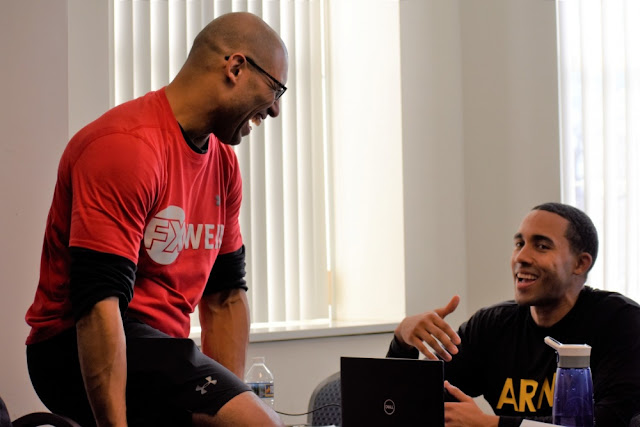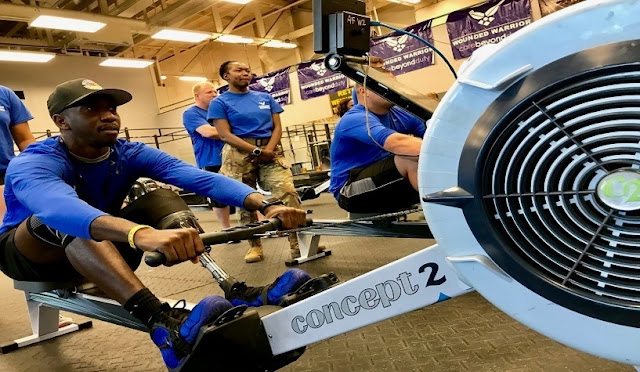Maryland Guard Intel Battalion prepares for Army Combat Fitness Test through Innovation and Agility
Story by Maj. Kurt Rauschenberg
58th Expeditionary Military Intelligence Brigade
REISTERTOWN, Md. – As the Army transitions to the Army Combat Fitness Test to asses Soldier fitness levels, the Maryland Army National Guard’s 629th Military Intelligence Battalion has embraced a program designed to enhance individual physical fitness routines while preparing for the new test.
Called ‘Fit to Serve,’ the voluntary program coaches Soldiers in fitness and nutrition, offers technology to track physical activity and sleep routines, and provides physical therapy resources with a focus on overall health wellness and resiliency.
“Anticipating the new Army fitness test, we are taking an extra step now to not only get our troops physically prepared for the dynamic events it brings, but also to build-up their confidence in themselves to overcome unforeseen challenges that may exist,” said Army Maj. Michael Bryant, the battalion commander.
The program is divided into stages that include setting individual fitness and health goals, assessing lifestyle behaviors, participating in virtual coaching and completing a variety of fitness programs and challenges.
The program was introduced to Army Sgt. Fatai Emiabata, a section leader within the battalion, in conversation with a tactical fitness specialist during a physical therapy session.
“I needed to find other ways to help my Soldiers get in better physical and mental shape for when we are called to mobilize domestically or deploy overseas,” Emiabata said. “This struck me as a great way to make that happen, so I took it to my leadership.”
From that start, others helped Emiabata build the program within the 629th, including Army 2nd Lt. Delvon Anderson, an intel officer and Army master fitness instructor in the battalion who also works as a personal trainer in his civilian life.
“Some Soldiers start training for today’s fitness test about 30-days beforehand because it’s just the push-ups, sit-ups, and run,” said Anderson. “You can’t do that with the new fitness test given it’s a whole integration of different physical aspects such as stability, coordination, and balance.”
Bryant added that the program not only helps Soldiers during drill weekends, but also when out of uniform in civilian life.
“The biggest thing for me is having a family-feel network outside of drill and challenging one another to succeed while learning meaningful life-lessons that’s more than just passing the fitness test,” said Bryant.




Comments
Post a Comment